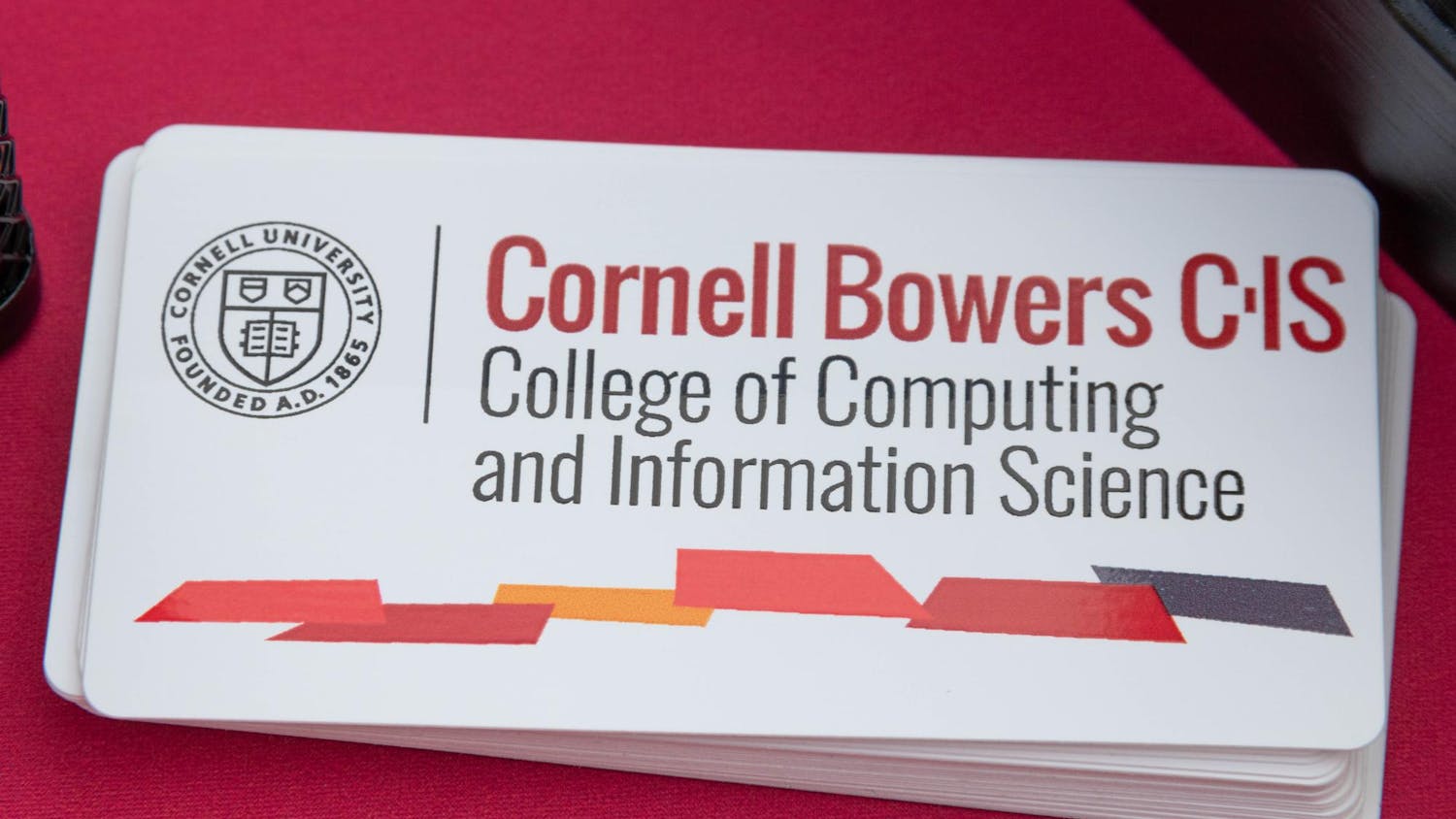The first-ever sequencing of the human genome cost $2.7 billion. Today, the service 23andMe offers personal genome sequencing for less than $200. And for students enrolled in Cornell’s personal genomics class, it’s free.
Prof. Charles Aquadro, molecular biology and genetics, has been teaching Molecular Biology and Genetics 1290: Personal Genomics and Medicine: Why Should You Care About What's in Your Genes for seven years now, following his hugely successful Cornell University Genetic Ancestry Project, a collaboration that traced the ancestry of over 200 Cornell undergraduates in the spring of 2011.
According to Aquadro, the goal of the course and the option to participate in ancestry genetic testing by 23andMe is to help demystify genetics and genetic science, especially for students not majoring in scientific fields.
“Anybody from any major can come on board with this … [my goal is] to empower people with something that is cutting-edge science but is at the same time something that really matters to them and their own lives,” Aquadro said.
As biotechnology rapidly advances, accessing genetic information is becoming easier, and according to Aquadro, genetics will soon play a major role in everybody’s lives.
“Some people are curious about ancestry testing, and are interested in learning something about their genetic ancestry,” Aquadro said. “The other component of it is that genetics is going to play a vastly larger role in everybody’s lives in regards to medicine.”
With the rise of personal genetics in the medical field in regards to preventative care, reproductive health and disease prediction, Aquadro said that there is both curiosity and mistrust among the public.
“What about privacy? What about the effect on my ability to get a job? What about insurance? ... Am I going to get discriminated against? Who sees my data?” Aquadro said, describing common questions in reference to genetic-specific care.
Despite these concerns, he firmly believes that the key to overcoming such challenges is to promote education about genetics and genetic data, especially among those regulating the policy involved.
“They're all largely people that aren’t scientists themselves. And so this presents a real problem, because we have people that don’t understand the science being in a position of making and regulating these kinds of things,” he said.
With the personal genetics class, Aquadro hopes to help create a scientifically literate community.
“Cornell undergraduates are a great place to focus an effort on reaching out to people ... If one can target students outside the sciences, they're the ones that will be on the other side of these issues,” Aquadro said.
He believes part of the power of offering genetic testing to the course is the excitement it generates about learning and scientific education. By sharing with family and friends, he said, the students themselves become teachers of genetics.
However, not all of the students’ reactions to genetic testing are positive. Aquadro emphasized that genetics “means different things to different people,” and as such they respond to it “in different ways.”
“It's really important to understand that some people think differently about this. That's why we spend time in the discussion sections,” he said.
Aquadro believes that a sound understanding of one’s personal genetics is something that is important to everyone's scientific as well as social education.
“I would love to see [BIOMG1290] be a course that is offered to every student coming in ... I want people to understand a little bit of the science but also understand why different people react differently to it,” Aquadro said.
According to Aquadro, a sound understanding of genetics can bring us closer together by showing students “how similar they are to so many other people that may seem, or look, different … they are genetically virtually identical.”
“Cornell requires every student to take a swim test,” Aquaro said. “Every student should understand something about their genetics.”

What’s in Your DNA? Cornell Genomics Class Provides Students Free 23andMe Testing
Reading time: about 4 minutes
Read More










